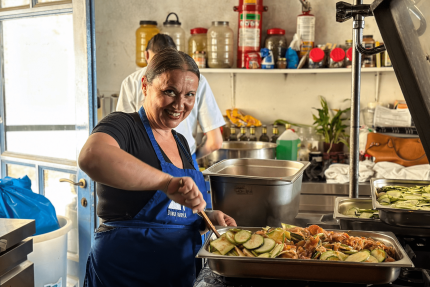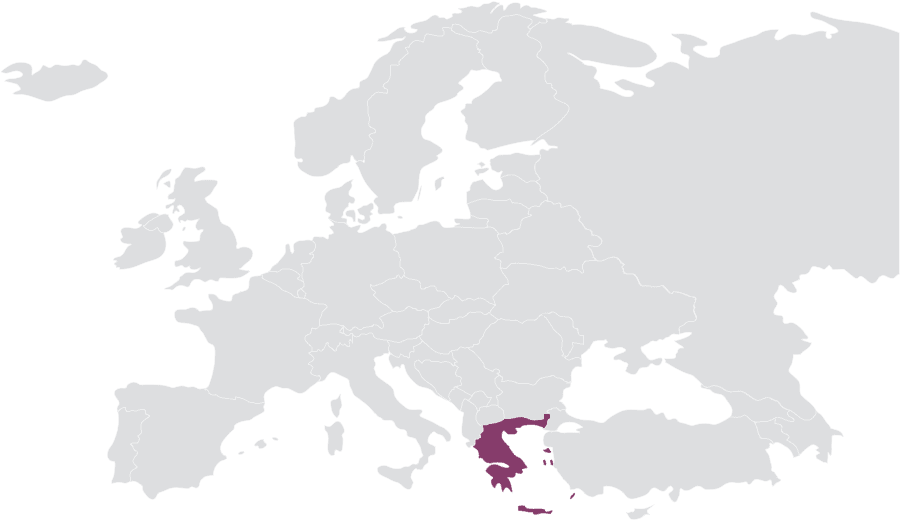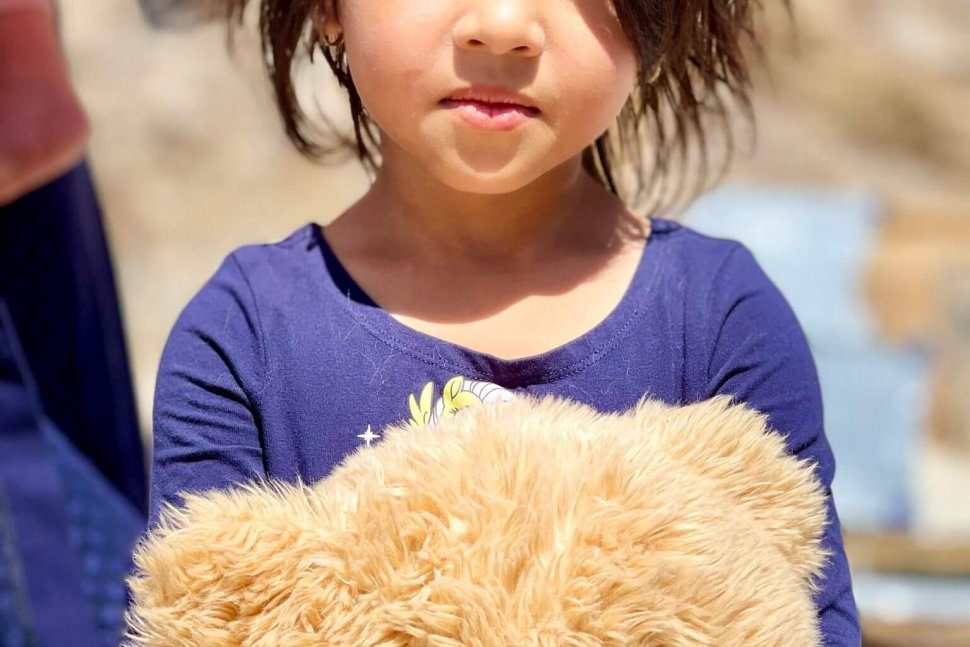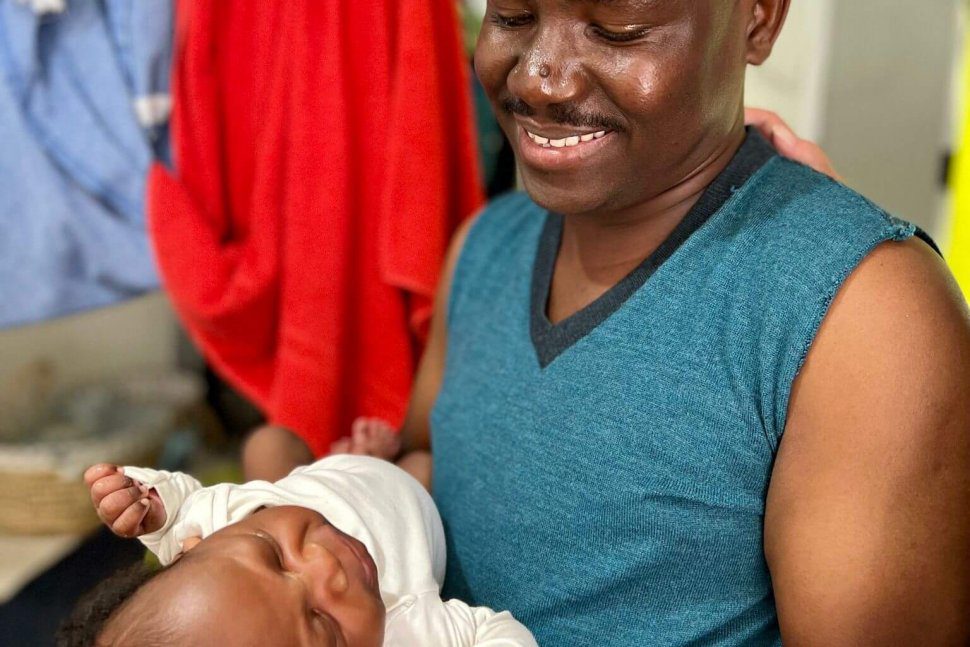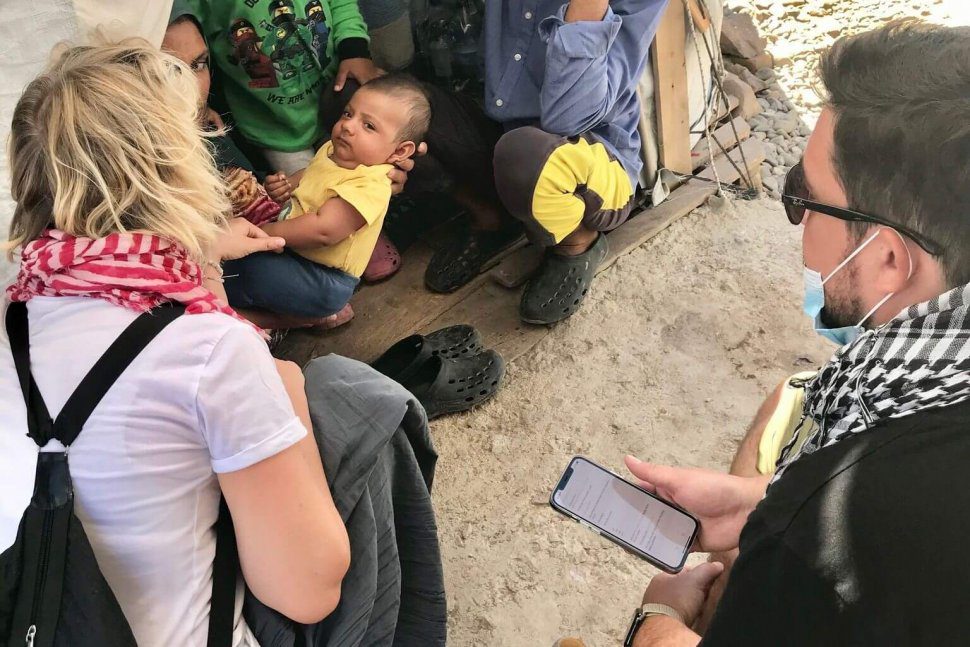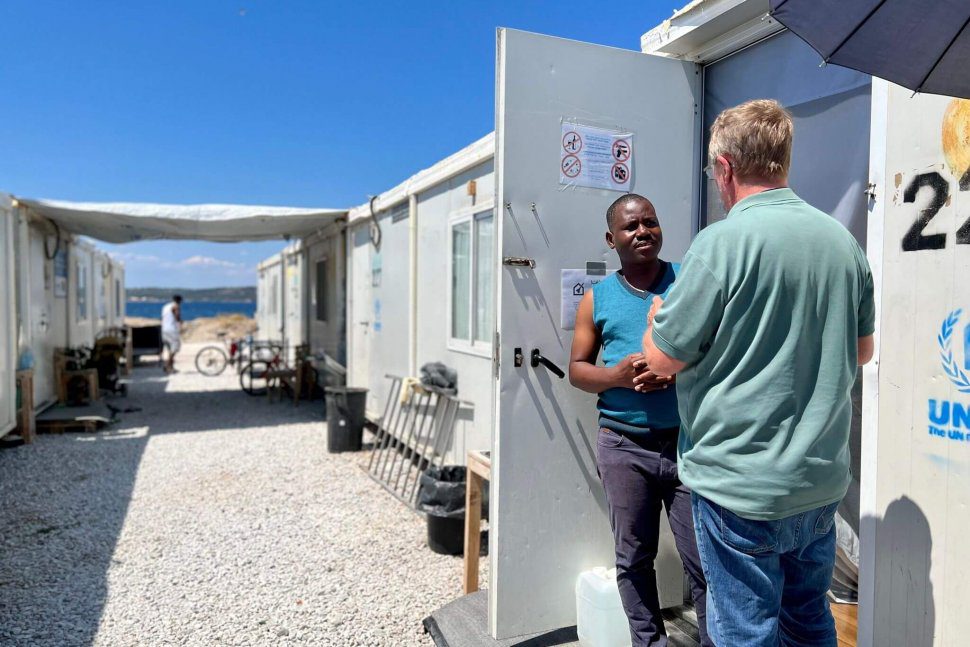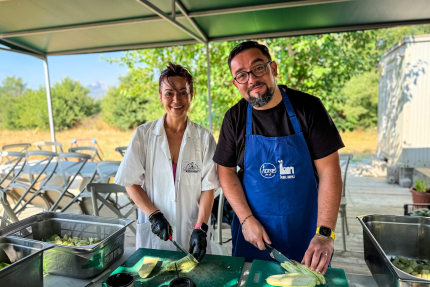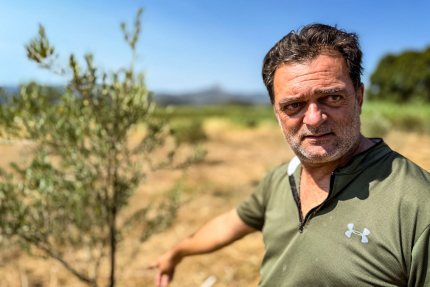It was night. It had to be – otherwise they wouldn’t have sailed. They waited for the darkest of nights, without the moon. The moon doesn’t help, it’s too bright. In addition, a full moon brings wind and high waves. During the day, they could see Greece from the Turkish coast as if it were in the palm of their hand. At night, not even the side of the dinghy was visible. They did not take into account the technology available to the coastguards, whose night vision and thermal imaging cameras perform well in the greatest darkness. They didn’t know that, for them, the time didn’t matter. But they felt better themselves not being able to see anything.
The stories of the inhabitants of Moria 2.0 are very different, but they all have a common ending. A night crossing to Europe, full of terror but also hope for a better future. Staying in the camp slowly extinguishes this hope.
The boats are boarded by women with children, pregnant women, men, fathers and minors whose parents could not afford the journey and decided to send only their children into the unknown. They knew that this unknown would still be safer for them than the family home, which could collapse at any moment. They come from Afghanistan, Syria, Iraq, the Democratic Republic of Congo and other parts of Africa. They were driven from their homeland by the Taliban, war, famine, an oppressive government or a harsh climate that turned their fields, their source of livelihood, into dust.
They are afraid of water. They can’t swim. Where they come from, water is used for washing, not recreation. The nautical stretch of their journey haunts their dreams at night.
David comes from Haiti, to which he will never return. It would be suicide. Life has written him a scenario even darker than that fateful night at sea. He doesn’t even want to talk about what he’s been through – his eyes immediately well up with tears. Anything that happens to him now will be better than the past. He wants to work and give his daughter a normal childhood. The girl is one month old – by the time she starts to understand where she is, everything will be fine. David is sure of it.
Not all children manage to get through the camp without making memories. Many wake up screaming and wetting themselves in the night as images of the darkest night at sea begin to be projected under their eyelids.
We visit one family after another, knocking on every container. We ask what they need and make sure our previous aid had arrived on time. In return, we receive smiles, gratitude and hospitality. Abdul invited us for lunch yesterday. He offered a dish of rice in tomatoes with mint seasoned homemade yoghurt, a delicacy of Afghan cuisine. A real feast, although we know he prepared it especially for us, with his hard-saved money.
If you would like us to be here to visit more families tomorrow on your behalf, please do some shopping for good in our charity shop today. Donate at least one hot meal to someone. We will tell them that it is from you and that, in addition to their many enemies, they also have wonderful friends in this world with whom no darkness will seem so terrible any more.
